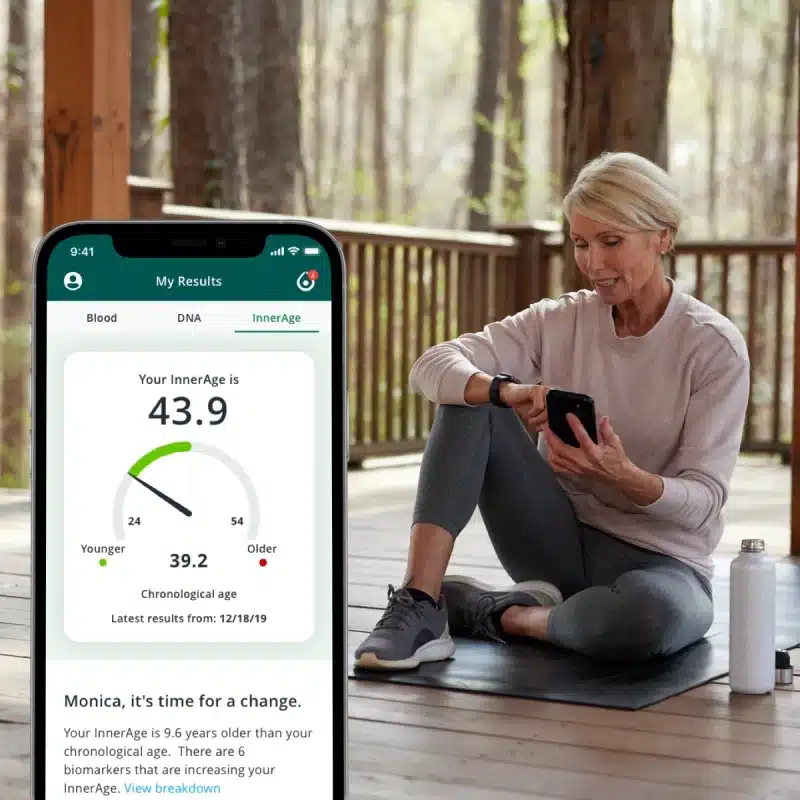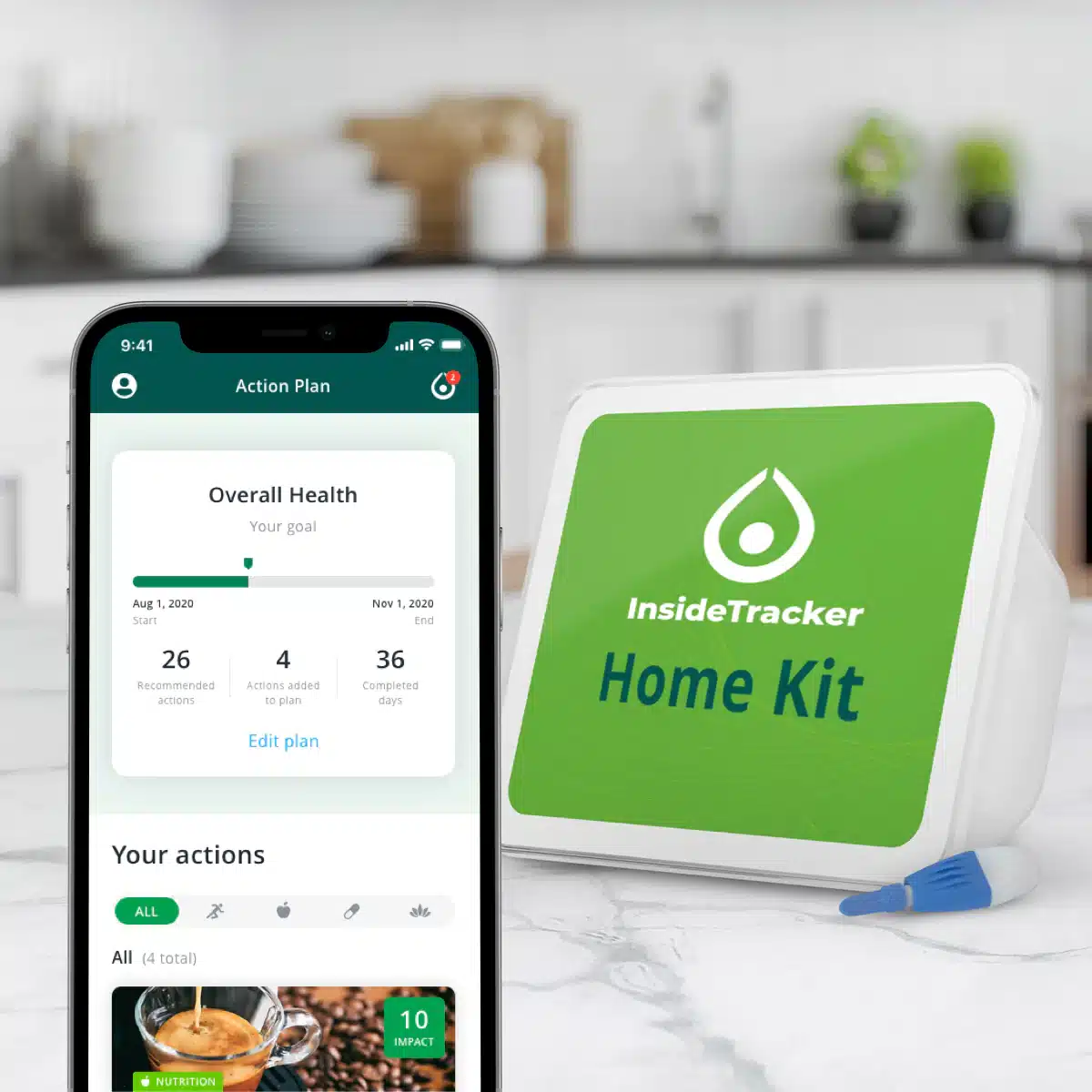The truth is people age at different speeds—some faster, some slower. The number of birthdays you’ve had doesn’t necessarily reflect your body’s internal, biological age. Your biological aging depends on a combination of genetic traits as well as lifestyle factors like diet, exercise, stress, and sleep.
To live your longest and healthiest life possible, your body needs to be periodically tested and recalibrated to fully understand where your health is optimized (and where it’s not). Blood biomarkers—objective biological indicators of health—change over time. Certain biomarkers can predict the rate that your body is aging on the inside. These blood biomarkers are impacted by your daily habits. It’s important to measure how these habits are impacting your body.
InsideTracker quantifies this with a calculation of your biological age, called InnerAge.
Their science-backed algorithm measures the blood biomarkers most associated with aging, accounting for factors most strongly linked to healthspan to identify precisely what is impacting your InnerAge, both positively and negatively. Here are a few examples:
- High-sensitivity C-reactive protein (hsCRP) is a general marker of inflammation indicative of aging. High hsCRP levels can put you at a greater risk of getting sick. Internal inflammation is also connected to oxidative stress and accelerated aging, so mitigating inflammation is a priority during aging.
- Blood glucose is the body's primary source of fuel. Properly regulated glucose levels are essential for maintaining overall health, performance, and longevity. Glucose regulation also can decline with age. Research and customer data show a strong correlation between blood glucose and age—a lower glucose level is associated with younger age and vice versa.
And once you have the in-depth knowledge on how your habits are impacting your body, you can take action. Here are a few examples:
- Try a curcumin supplement. Curcumin is a unique polyphenol found in turmeric that has powerful properties that can reduce inflammation. Supplementation can reduce inflammatory cytokines, oxidative stress, and hsCRP.
- Drink green tea. Coffee contains many phenolic compounds (e.g. chlorogenic acids, diterpenes, and kahweol) best known for their antioxidant-like properties. These phenols protect your cells by slowing and preventing oxidative damage of healthy cells.
Learning your body’s InnerAge, is a powerful catalyst to learn how to take control of your health and wellness. InsideTracker’s InnerAge 2.0 has been a revolutionary tool in helping people significantly improve their healthspan.
“I got the results to really dial in the pieces of my blood profile that needed some work… that’s real data that will help me continue to build fitness, build health, build vitality—all of the things that ultimately just give us this great life.”
–Mark Allen, 64
InsideTracker Community Member
6x IRONMAN World Champion
Want to see your InnerAge and reveal your personalized path to living healthier, longer?




